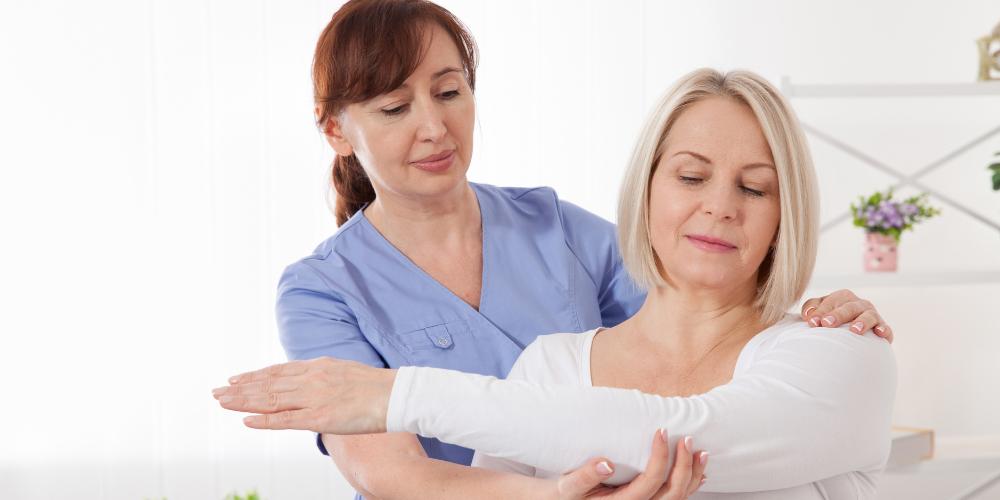SHOULDERS & KNEES PHYSIOTHERAPY
Have you injured your shoulder or knee? Are you suffering with pain that just gradually came on by itself? Several of our Physiotherapists at ANCHALA HEALTHCARE have a special interest in treating shoulders and knees. We have worked closely with prominent Brisbane Orthopaedic Specialists for many years and we run partnered shoulder and knee clinics with Orthopaedic Surgeons.
Shoulders
Your physiotherapist will undertake a thorough assessment of your shoulder, with relevant consideration of your neck and upper back, in order to specifically diagnose your shoulder problem. Common shoulder symptoms may include pain and aching, swelling, clicking, or instability.Common shoulder conditions include:
- rotator cuff tears
- tendonitis
- impingement, bursitis and calcium deposits within the joint
- ligament and cartilage tears
- dislocations and shoulder instability
- frozen shoulder
- poor posture
- overuse injuries
- fractures
- arthritis
- muscle strains
- acromioclavicular (AC) joint injury
- referred pain from the neck and other areas
Types of Treatment
Your physiotherapist will develop a treatment plan with you to rehabilitate your shoulder problem, which may include:
- hands-on mobilisations of your shoulder joint, acromioclavicular joint (where your collar bone meets your shoulder) and neck/back
- stretching and strengthening exercises for your postural and shoulder muscles – this may incorporate the use of pulleys, theraband, hand weights and gym equipment
- sling prescription and fitting for shoulder support
- taping to support your movement or exercises
Knees
Has your ability to walk, run, work or enjoy your recreational pursuits been limited by an injury to your knee? Common knee symptoms may include pain and aching, swelling, clicking, locking or giving way.These symptoms may be caused by conditions such as:
- osteoarthritis
- cartilage tears
- ligament strains and tears
- kneecap pain and inflammation
- calf and thigh muscle tears
- tendonitis and bursitis
- dislocation and instability
To diagnosis your problem, your physiotherapist will observe and feel your knee movements and perform specific tests for ligaments, muscles and cartilage. Additional information may be required in the form of x-rays, MRI or CT scans – your physiotherapist can refer you for these, or you can access them through your GP.
Types of Treatment
Once your diagnosis is determined, your physiotherapist will develop a treatment plan with you to rehabilitate your knee problem, which may include:
- massage, hands-on mobilisation and specific stretches
- tailored exercise to target weak muscles
- progression of exercises to increase strength, coordination, speed and balance
- taping to limit movement or provide additional support
- brace prescription or fitting for knee support
- prescription and fitting of crutches and other mobility aids as required
- recommendations for footwear or prescription of orthotic inserts
Are you having shoulder or knee surgery?
ANCHALA HEALTHCARE’S Physiotherapists provide in-hospital treatment after surgery. This may involve:
- seeing you before your surgery to help you prepare
- talking to you about your surgery outcomes and rehabilitation
- fitting and adjusting your shoulder sling or knee splint
- guiding you through your initial rehabilitation exercises
- helping you to move safely after surgery
- teaching you how to use crutches or other walking aids
Our physiotherapists can continue to guide your rehabilitation once you leave hospital. Using hands-on mobilisation and massage, guided exercise and other techniques, your physiotherapist will help you to improve your range of motion, coordination and strength so that you can return to your work, sport and hobbies. Please ring us to make an appointment.


